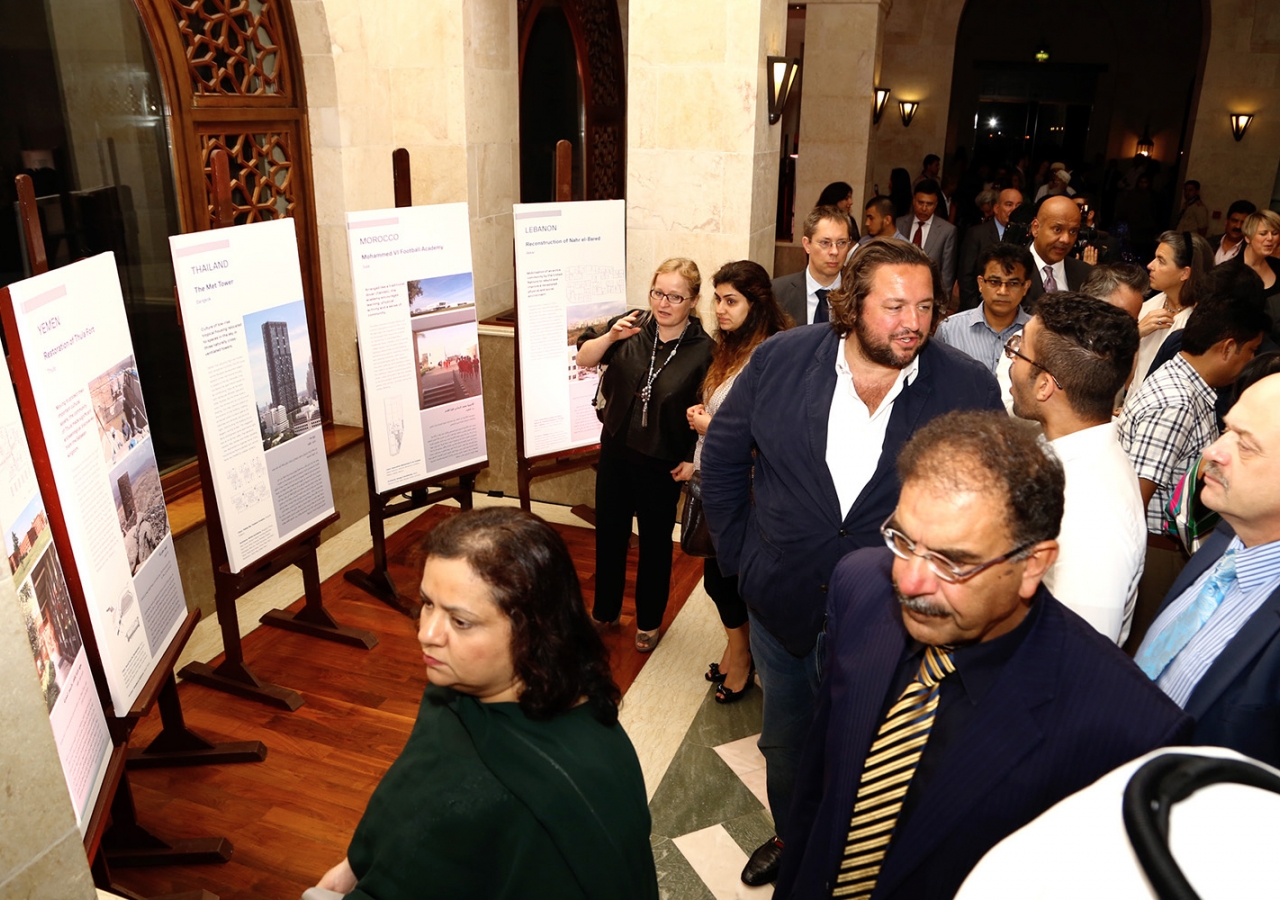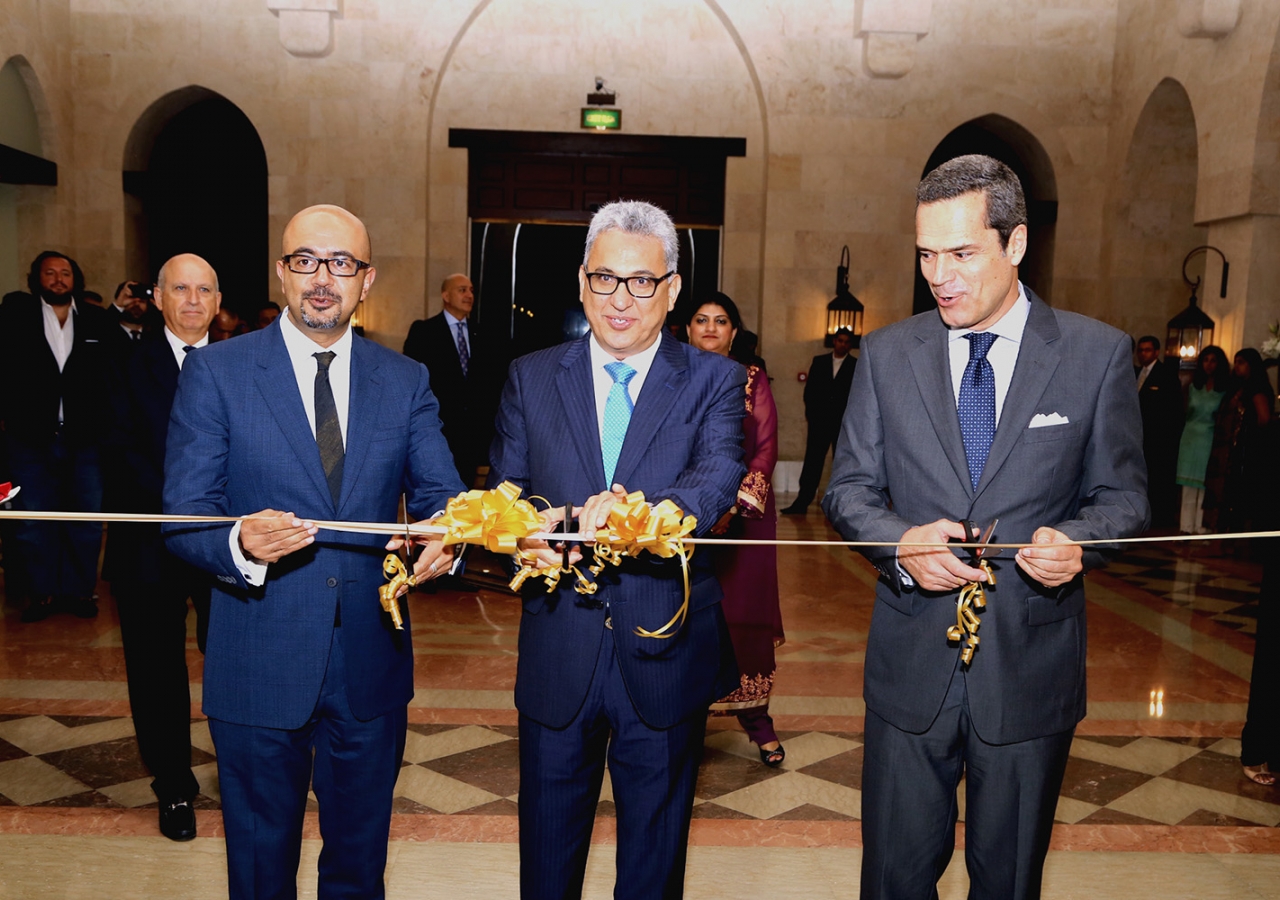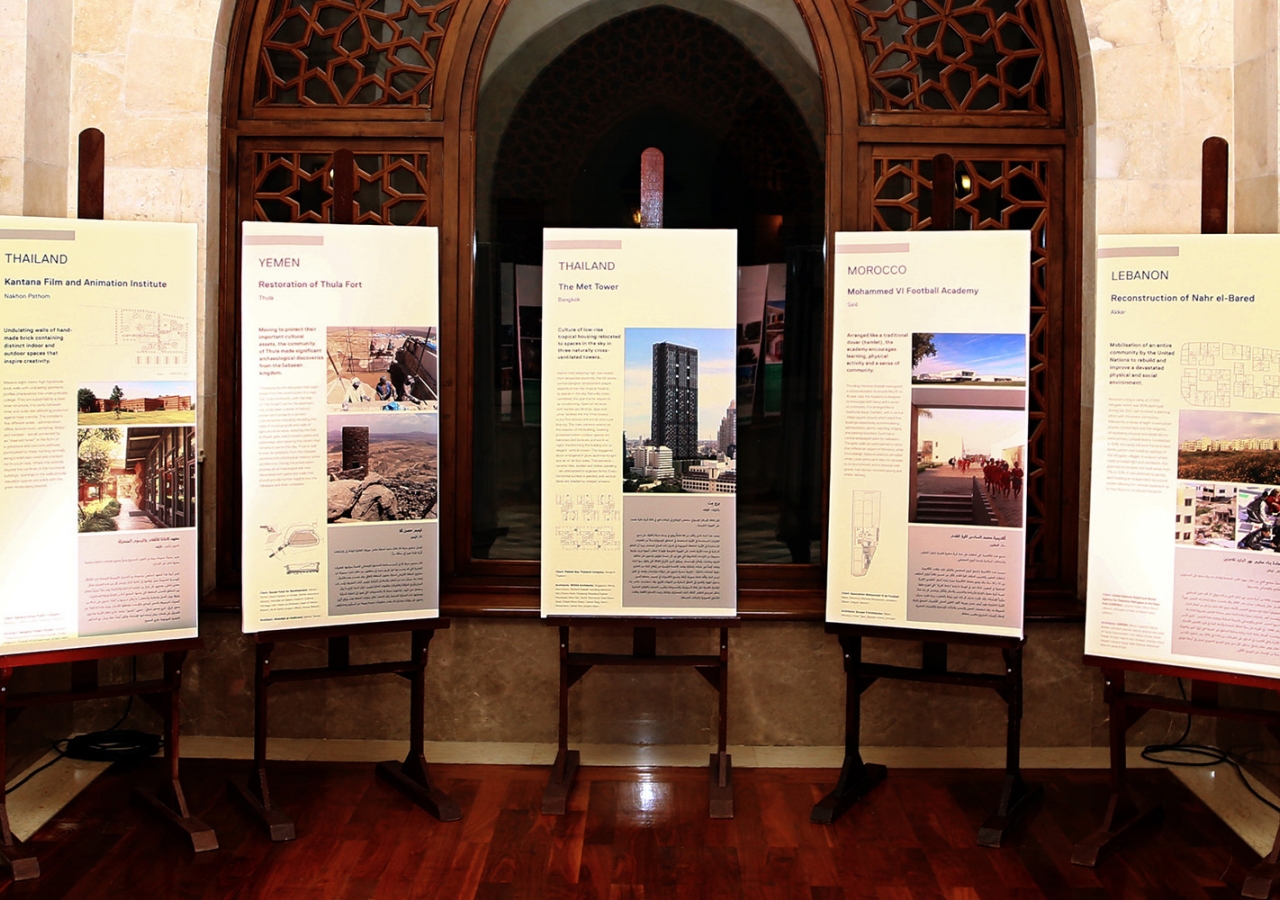Dubai, 7 July 2015 — Dignitaries and ambassadors from across the United Arab Emirates gathered at the Ismaili Centre for a suhour and a look at how culture can be a springboard for development. The event was jointly hosted by the Aga Khan Trust for Culture (AKTC) and the Canadian Embassy.
In a presentation that he delivered to the guests, Shiraz Allibhai, Deputy Director of the AKTC, shared examples of the Trust’s approach to demonstrate how cultural heritage can serve as a catalyst for social and economic development.
One of these was Al-Azhar Park — a centuries-old dumping ground in Cairo that was transformed by the AKTC into a state-of-the-art green space. The development of this unique cultural asset subsequently led to a rehabilitation of the impoverished neighbourhood of Darb al-Ahmar that adjoins it, and the extension of education, health and microcredit services to the community. Altogether the project transformed the nature of the neighbourhood, the society and the environment.
The Trust’s efforts to promote the value of culture in advancing development, mutual understanding and pluralism is bolstered by the four-decade long relationship between Canada and the Ismaili Muslim community, explained His Excellency Arif Lalani, Canada’s Ambassador to the UAE.
Last year, in cooperation with Art Dubai and the Canadian Embassy, the Ismaili Centre hosted the first international preview of the Aga Khan Museum. As a result of the relationships forged by this initiative, the UAE’s Barjeel Art Foundation will be exhibiting at the Museum, the first Arab contemporary art exhibition ever to be shown in North America.
“Canada and the Ismaili community have a long and valued history,” said the ambassador. “The Aga Khan Museum in Toronto, Canada, is another example of our shared commitment to the understanding of and celebration of diverse communities and civilisations.”
Following the suhour meal, guests toured the Ismaili Centre. An exhibition of winning projects from the most recent cycle of the Aga Khan Award for Architecture was on display, and many lingered at each panel, absorbing the details of projects recognised for their contribution to transforming the lives of the communities within which they were built.
The event continued late into the night, with guests appreciating the warm and festive ambiance and engaging in thoughtful discussion with new friends.
“The Ismaili Centre seeks to drive the exchange of knowledge and ideas in order to create better understanding between cultures and communities,” said Amiruddin Thanawalla, President of the Ismaili Council for the UAE.
The Dubai Jamat also benefited from the event. The exhibition remained on display and Shiraz Allibhai held a separate session for the Jamat the next day.
“I thoroughly enjoyed this thought-provoking presentation,” said Safdar Rashid, a longstanding member of the Dubai Jamat. “We are privileged to have such expertise in our community, and fortunate that people are willing to give their time and share their knowledge.”









